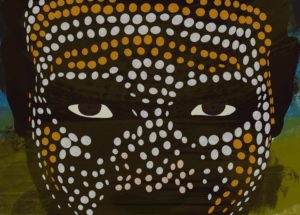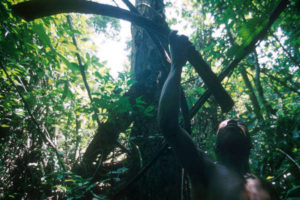Indigenous Peoples, their Rights and our Future

In 2007, the United Nations ratified the Declaration on the Rights of indigenous peoples. This was an essential and long overdue step by the UN to guarantee the legal situation of indigenous peoples worldwide. According to the UN, there are about 370 million indigenous people worldwide. Why do indigenous peoples have special rights alongside universal human rights? Indigenous people are peoples without passports, without national borders, without a guaranteed right to their land and environment. They need special legal protection. This concerns in particular the right to live their original way of life and culture as well as the right to their living space and the resources that belong to their land.
Does the UN Declaration protect Indigenous Peoples in Africa?
Great progress has been made since the UN Declaration in 2007. But in terms of their land and resources, the rights of indigenous peoples have not yet been adequately safeguarded. This is partly due to discrimination against their culture and way of life, and partly due to a lack of support from governments that do not adequately safeguard their rights. In Africa, this particularly affects sub-Saharan Indigenous Peoples, including the Himba, the San, the Baka Forest Peoples and many more, many of whom live as their ancestors did more than ten thousand years ago.
Conflicts often arise because valuable mineral resources are mined in the territories of indigenous peoples and these are displaced or forcibly resettled. This happened in Botswana, where the San were expelled from their hunting grounds in the Kalahari two decades ago to mine diamonds on an industrial scale. The Endorois in Kenya suffered a similar fate. They were also expelled, but for another reason: their territory was declared a national park.
Conservation of Wildlife and the Rights of Indigenous Peoples

2010 was an important year for the Endorois and all other indigenous peoples of Africa. For the first time in the continent’s history, the African Commission on Human Rights (ACHPR) has granted the Endorois their land rights. After long disputes, they were allowed to return to their territory in February 2010. They also received a share of the profits made on their land.
In this legal dispute, the conflict-laden relationship between the nature conservation of ecologically valuable areas and the territorial law of the indigenous peoples living there became clear for the first time. In the case of the Baka peoples in the Congo Basin and the WWF, this conflict has been boiling again since 2018. This is about the tropical rainforests in the heart of Africa. The WWF wants to establish a large nature reserve in the Congo region. However, according to the Baka living there, it has not reached an agreement with them. Rangers engaged by the WWF deny them hunting in their area. Survival International fights with the Baka to preserve their habitat. The forest is their lifeline and provides them with food and medicinal plants. A life outside the forest is unthinkable for them. Studies have shown that indigenous peoples like the Baka, who have no access to their forests, fall ill and die earlier.
Conservation of Wildlife and “Green Colonialism”
This conflict once again shows that nature conservation and animal welfare are very important. But they must not happen at the expense and not without the will of the indigenous peoples. Even more, only with the help of the ingenious knowledge of these peoples can ecologically valuable regions be preserved. Because they are the ones who have maintained the balance in these areas for thousands of years. Would our planet have a future without their knowledge? It can be doubted.
Survival International is a human rights organisation working for indigenous peoples and is campaigning for a focus on national parks and indigenous peoples. Its 50 years of commitment have shown that sustainable nature conservation is only possible with the participation of indigenous peoples.
More about Survival International‘s Campaign to protect indigenious peoples



